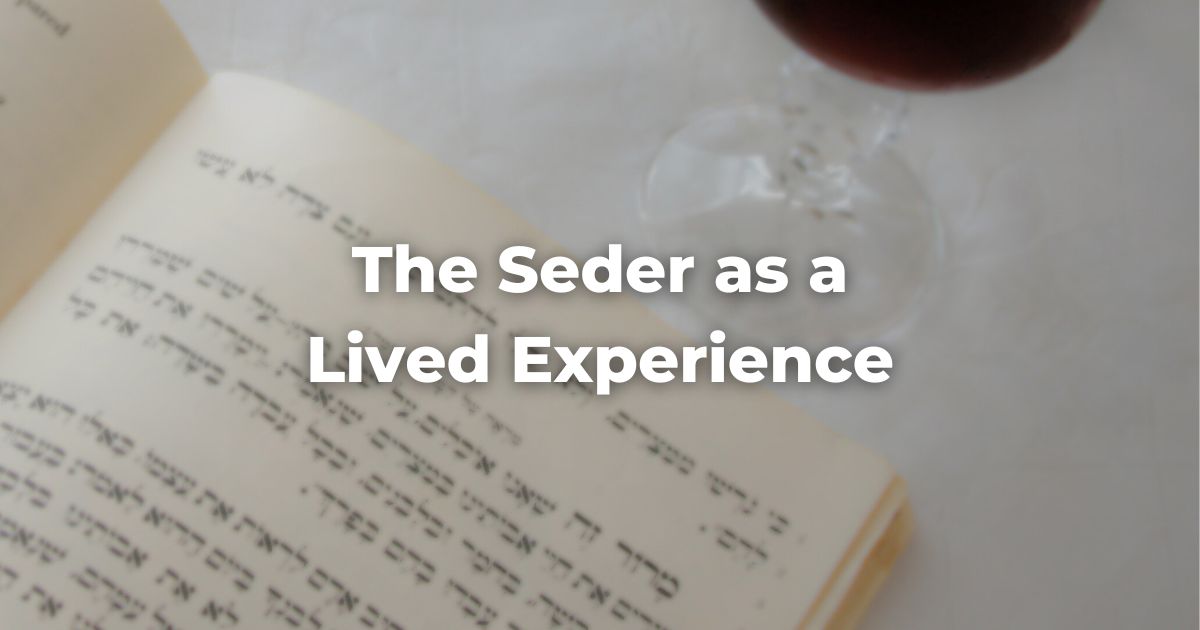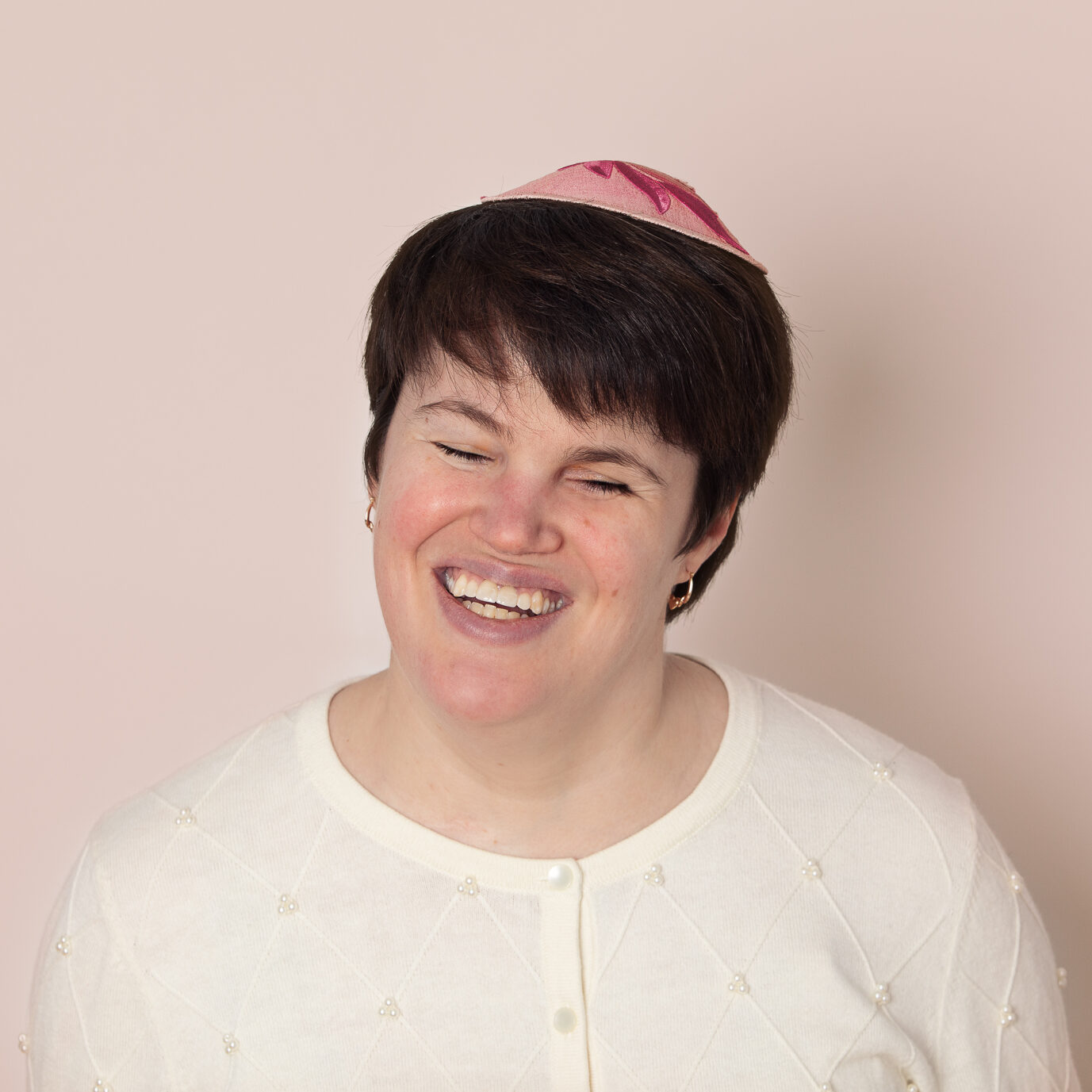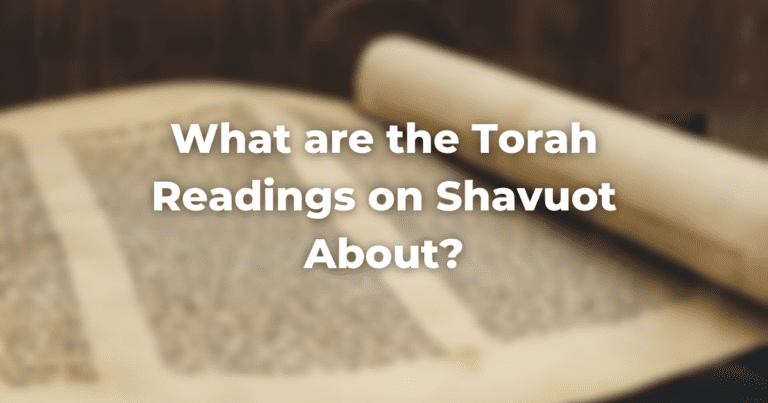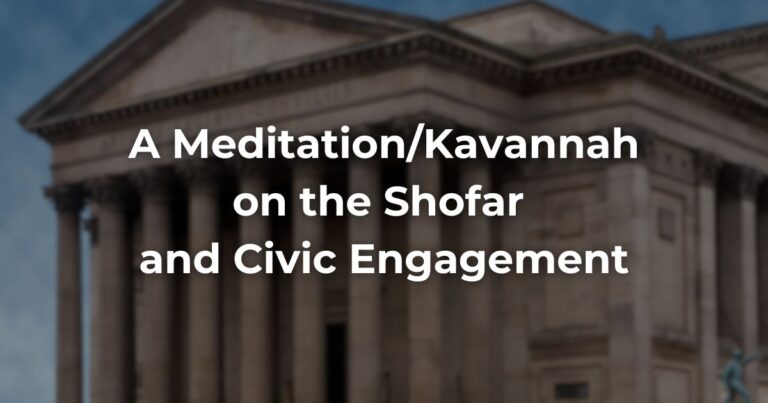This piece is part of Exploring Judaism’s 5784 Passover Reader. Download the whole reader here.
Not Just Recounting, But Reenacting
On seder night, we embark on a holy commemorative journey through the Haggadah as we move spiritually and temporally from degradation to praise. We do not merely recount by rote our journey out of Mitzrayim, Egypt, out of the narrowness to a wide expanse, but we engage in holy reenactment of the experience.
In MishnahA collection of rabbinic teachings edited in Israel around 225 CE. Organized in six sedaraim by subject matter and dealing with both ritual and civil law. Both the Jerusalem and Babylonian Talmud are expansive discussions of the Mishnah. Pesachim 10:5, it is taught that in every generation, every single one of us is obligated to see ourselves as though we, too, went out of Egypt. We aren’t only recounting the origin story of our ancestors, passed down generation after generation. We are part of the holy collectivity. We are active participants, not passive observers.
The Telling that we ritually experience on Pesach is not only about remembering our people’s foundational story. Indeed, this story is so central that we are asked to recall it every day of our lives. Jewish liturgy makes mention of it in the morning and the evening. Each holiday is referred to as a Zecher—a remembrance—of the exodus. Those who wrap tefillin bind these sacred words to their bodies. It is so central that we access it using as many sensory vehicles as are available to us.
Truly, Pesach is such a momentous event in spiritual terms that it is our duty to be actively shaping this experience for ourselves in every generation.
We move from the narrow place to one of wide expanse, a place devoid of G-d consciousness to one suffused with it. We move from a sense of degradation to praise, of owning our own narrative, no longer allowing others to define or shape it for us. We think about what represents Mitzrayim in our own lives. What are those things that we cannot seem to free ourselves from? What would it mean for us to find a sense of liberation and possibility after years, perhaps, of feeling weighted down by story, by fear, by expectation that is far greater than we are as individuals yet impacts us so intimately?
In every generation, we are each obligated to perceive ourselves as if we, too, left Egypt. The promises G-d makes to our ancestors, which we recount on seder night apply to us as much as they did to those who came before. Our physical and social locations as a people have undergone tremendously radical shifts over the generations and continue to do so in our own day.
Pesach has carried our people through trials and tribulations, through times of great joy and ecstasy.
Our calendar, with its emphasis on the spiral of time, encourages us to return, again and again, to the essential theological truth. We, too, were there, a part of the story. We participated in the awesomeness that was the exodus and as such, we are enjoined to bring its power into our lives; we do so in an embodied way so that it does not become a rote, stultified experience. Ideally, we bring this power with us into how we show up in the world around us.
We know that this leave taking is multifaceted, as relevant to us on the personal level as it is on the collective. So how do we actualize this beautiful idea from the Mishnah on a personal level? Maybe we choose one thing this Pesach we yearn to break free from. Maybe we set modest goals for ourselves. My anxiety might not vanish overnight, perhaps, or perhaps this one gnarly habit I have will remain with me. Yet, I can set an intention to embody the liberative possibility of choosing to live or act or show up in a unique way.
I can spiritually imagine and embody a future rich with the possibility of reemergence and rebirth by recalling that I, too, left Egypt, and so did we all. Our sederim are not meant to be rote, tired exercises in reciting lines that may not have meaning for us. They are, instead, about embodying the theological radicalism of our tradition. We move from degradation to praise, from narrowness to expanse in every generation, in large ways and in small ways.
May it be so.
Author
-

Rabbi Tuchman is a sought after spiritual leader and Jewish educator based in the Washington, DC area. She teaches Jewish contemplative and spiritual practices, in addition to consulting with communities and leaders on issues pertinent to disability inclusion.
View all posts https://soundcloud.com/laurentuchman https://buttondown.email/rabbituchman






